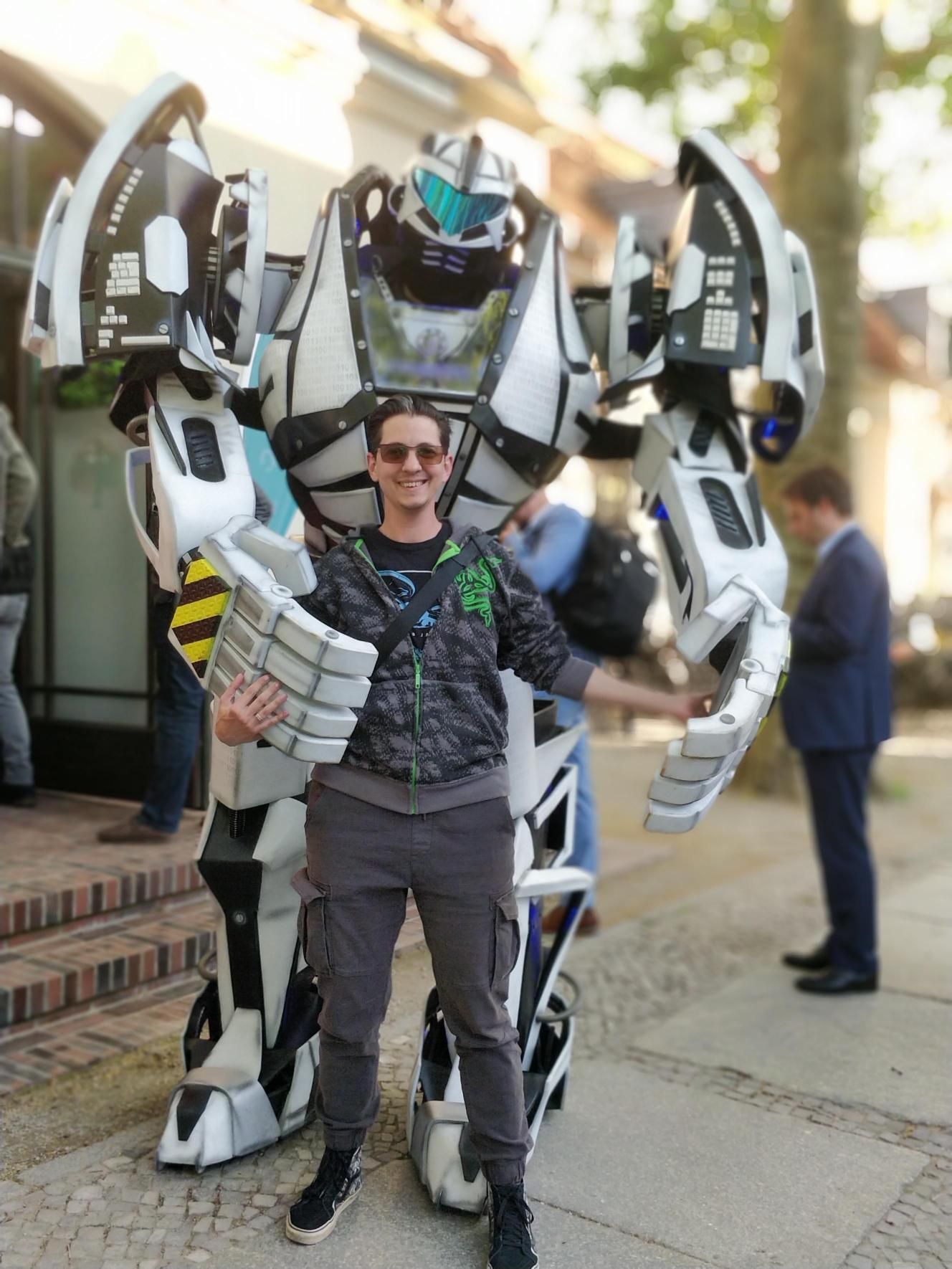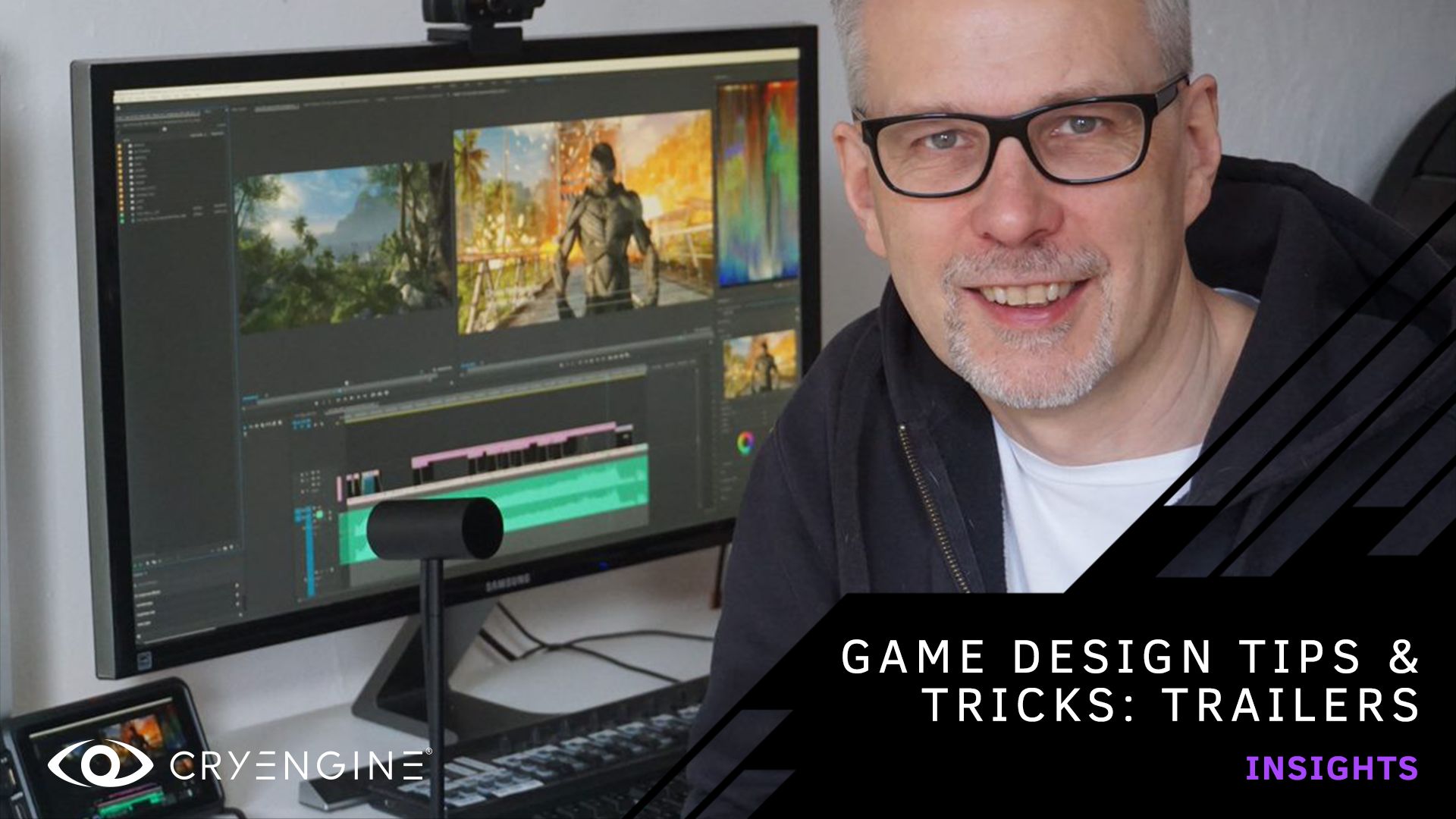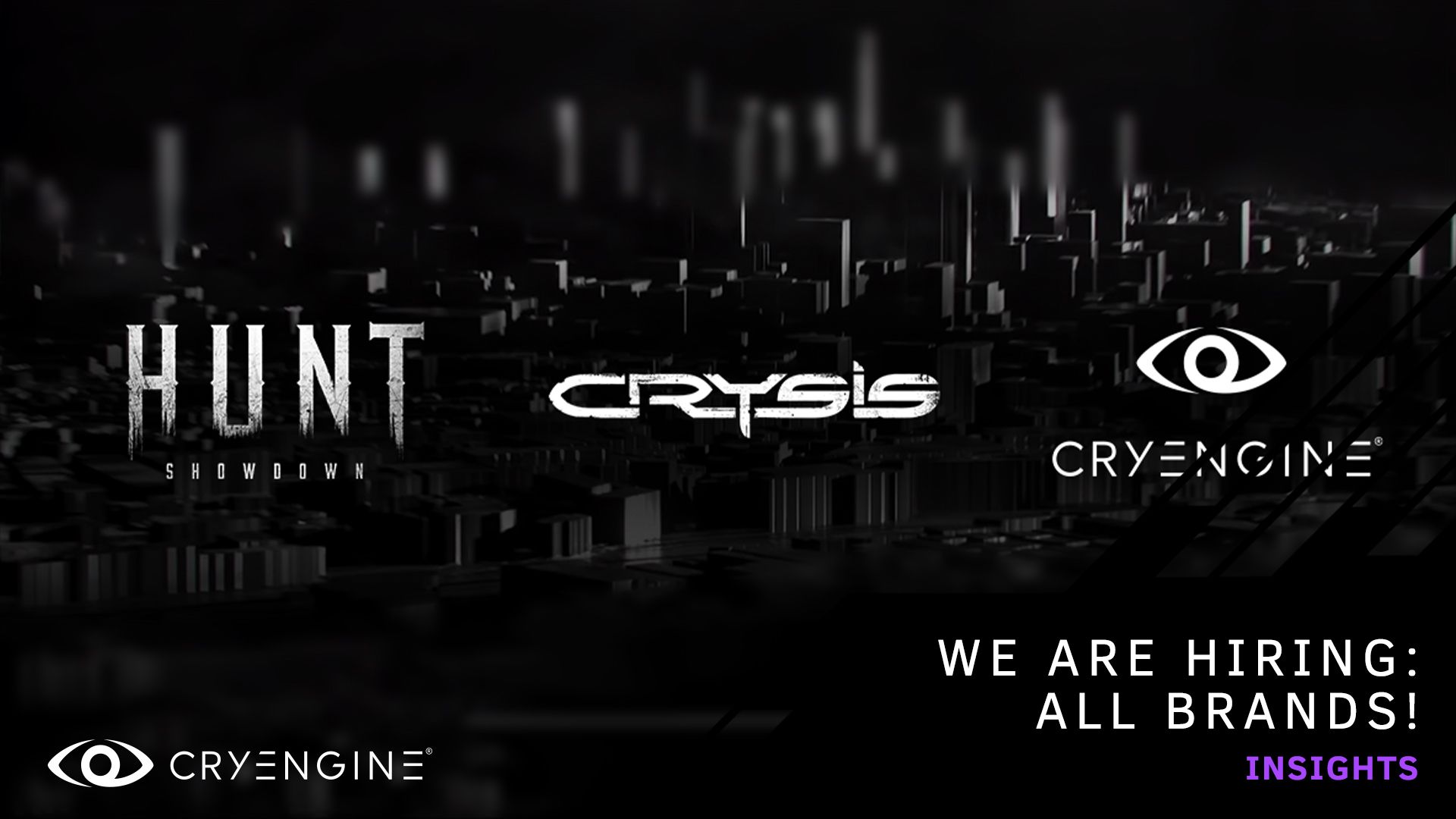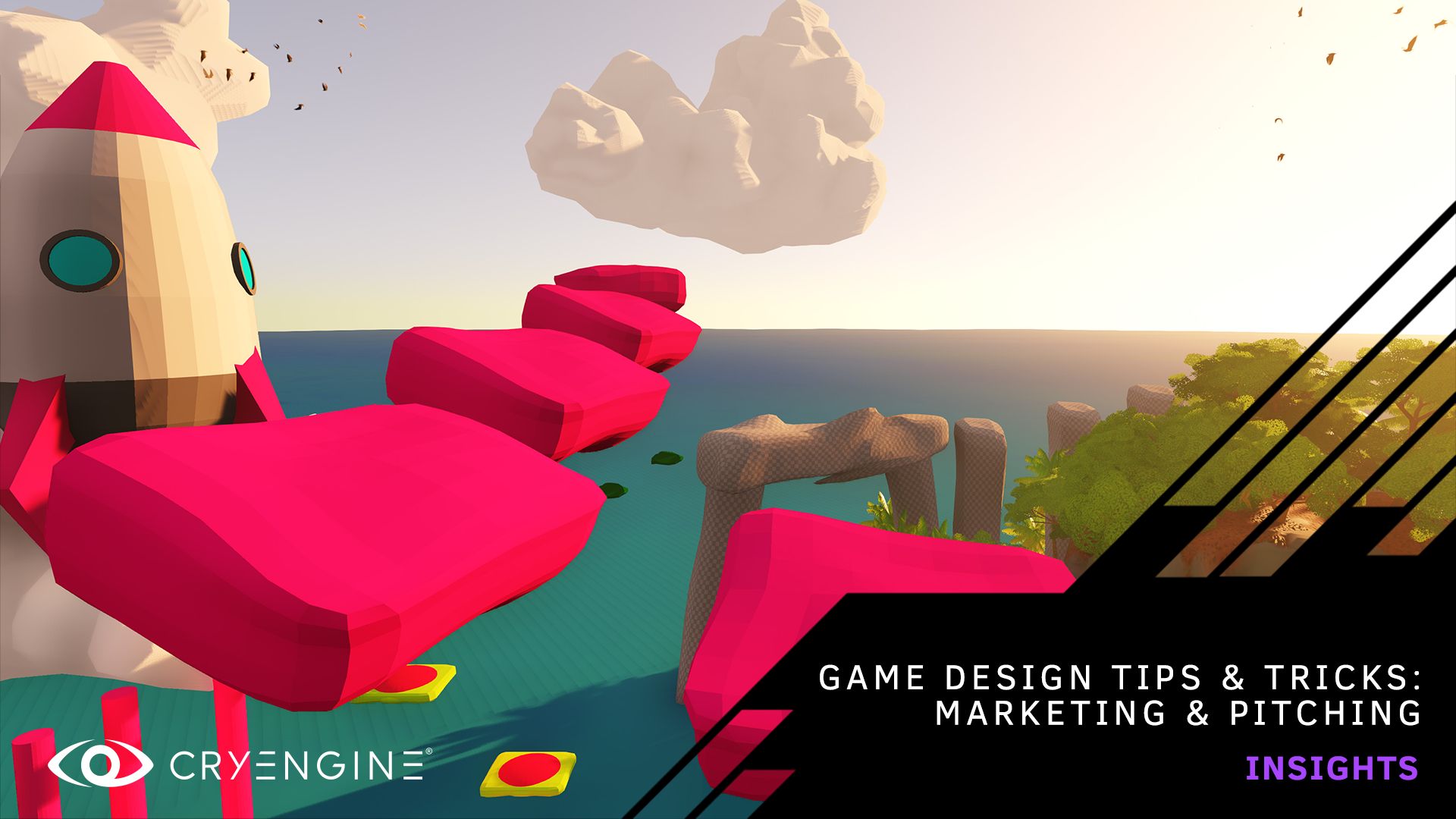
Game Dev Tips – Marketing
The latest installment in our Game Dev Tips & Tricks series helps you market your game and pitch it to publishers!
Today’s installment in our Game Dev Tips & Tricks series will be helpful for anyone involved in the business of making games. Learn how to pitch your game to publishers, find your game’s audience, and pick up practical tips and tricks for marketing with invaluable advice from Gabriel Yakir Ketteler, Senior Manager for CRYENGINE Ecosystem & Communication, who has been there, done it, and got the t-shirt!

Three Tips for Marketing Your Game
Think about marketing early!
You should think about marketing your game at the very beginning of development, at least if commercializing your game is your goal. There’s nothing wrong with creating a passion project for free using a platform like itch.io. But with the sheer number of games to play and the countless new releases, remakes, and sales, it is becoming increasingly challenging to cut through the noise and reach the right audience for your game. That often has nothing to do with how good your game is!
So, think about the target audience for your game the moment you write down the first ideas for the project. And evaluate the unique selling point or USP of your game. This will be crucial to your game's success. You should also familiarize yourself with your competitors. Look at other studios and their past and present releases that overlap with your game in genre, mood, art style, budget, and even difficulty.
Then ask yourself: What sets my game apart from other games? Why would I play this game if it wasn't mine? And ask your friends and family about your ideas, demanding honest answers! Keep in mind that not everyone will be supportive of your vision - and that's ok. Making a game that pleases everyone is almost impossible, and trying to do so will set you up for failure. Do all of this before you have spent a lot of time prototyping or making your game, or you will find it harder to let go of already conceived ideas and run the risk of overexerting yourself with unnecessary fluff and details. Do yourself a favor and ask the important questions before you even start prototyping.
Engage potential players online
Unfortunately, the days of entirely free marketing are over, and you’ll have to spend some cash here and there. But even with a small budget, there's plenty you can do. Start building a community around your game early on big platforms like Steam or the Epic Game Store. They usually come with forums or some other kind of engagement platform, and this is where your first players will be.
If you want to start even sooner, use social media to attract an audience of dedicated super fans early on. They will be your ambassadors and help you carry the torch once you're ready to enter the arena. Discord is a great and mostly free tool where you can create a server for your community to gather around the virtual campfire and talk about your game. Those are the good folks who can also help you test your game. Community management is the Alpha and the Omega - small-budget games and large-budget productions are nothing without a dedicated community of supporters, so treat them well.
One thing that has become increasingly difficult to handle recently is crowdfunding. It is still advisable to look into monetizing your community to help build your game but be careful about investing too much in that too early on. It's not the holy grail it once was.
Platforms like Patreon, Kickstarter, and IndieGoGO or even smaller-scale donation pages like KoFi are nice to have, but your supporters will expect bang for their buck. Don't fall down the rabbit hole of entangling yourself in monetized expectation management - if you ask people for money, you need to deliver. And asking for regular donations, like on Patreon, for example, puts a lot of pressure on your side to keep delivering constant content and news exclusive for Patrons, which can distract you from working on your actual game and using any additional content to promote it freely.
If you shackle yourself to an additional content pipeline of assets and items worth your supporter's money that you cannot share outside of your already established circle of supporters, that will slow down your effort in broadcasting your game to a wider audience. You would also need a solid roadmap detailing your resources at least 12 months in advance to make that route smooth sailing.
Of course, crowdfunding is also a source of income. So if you choose that route, don't forget to check the licensing documents of the engine and tools you use when you start crowdfunding. In some cases, making cash with your game even before release can mean you owe money to the publisher of the software you use. And, of course, check your country's tax regulations too!
Refine your pitch and pitch to the right people
Pitching to a publisher is an art in and of itself. It’s important to look for the right publisher. Publishers have a catalog, and your game needs to fit right in, so checking out the publisher landscape before you start fleshing out your initial idea will save you a lot of trouble. And you shouldn't be wasting a publisher's time, ever. It can get you blacklisted, so make sure you do your homework, pitch your game to the right publisher with similar games in their portfolio, and don't start pitchin' before you have the following things:
- A Game Design Document
- Concept Art & Designs that are solid enough to speak volumes about the finished product
- Ideally, a vertical slice that shows the core gameplay loop. This can be whitebox or use prototype assets
- Make sure your Core Gameplay loop shows your USP
Everything should be digestible in 20 to 30 minutes. That doesn't mean you have 30 minutes to explain your game- you should be able to explain it in 10! When you have their attention, they'll give you ample time to show and tell more. But to even get to that point, make sure you can fit your best arguments for your game on one spacious presentation slide. And always remember to be receptive to feedback and be respectful. Games are big business, but it's a small industry. You don't have to take all the advice you might be given but thank people for giving it anyway, as long as it is provided in good faith.
If you want more advice, you can chat with Gabriel directly on the official CRYENGINE Discord, the home of our friendly and experienced CRYENGINE community. And you can also check out Gabriel giving a masterclass in marketing in our Production Guide for Indies video below:
Want more game dev tips? ICYMI, you can check out the previous installments in our Game Design Tips & Tricks series below:
Narrative Design Tips & Tricks
Are you making something cool with CRYENGINE? Let us know in the comments, on the forum, or via Facebook and Twitter. Pick up tips and tricks about our engine, ask questions, and more by joining our community and the CRYENGINE development team over on our official CRYENGINE Discord channel. If you find a bug in the engine, please report it directly on GitHub, which helps us to process the issue quickly and efficiently. Don't forget to subscribe to our YouTube channel, where we host a range of content, including tutorials covering all aspects of the engine and game design. You can also subscribe to our official Twitch channel for live streams!
We value diversity and actively encourage people from all backgrounds and experience levels to apply to our open positions, so join us on LinkedIn and check out our careers page. And don’t forget to show your love for CRYENGINE with merch over at the official Crytek Store.



